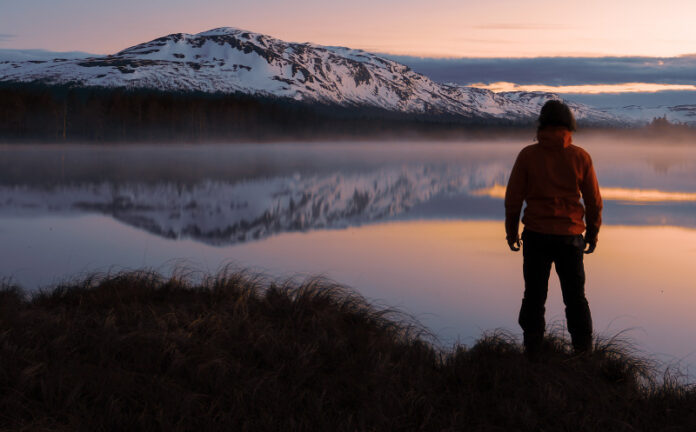When people picture solo travel, they often think of dreamy cafés, scenic overlooks, and navigating new cities with shaky Wi-Fi and Google Translate. But beyond the photos and logistics, there’s something else happening—something quieter. Solo travel can bring hidden mental health benefits, like building self-trust, processing emotions in unfamiliar spaces, and reconnecting with yourself without the usual noise.
Solo travel is more than a lifestyle trend; it’s a mental health intervention in disguise. Whether you’re reeling from burnout, navigating heartbreak, or just feeling stuck, taking a trip alone might offer more than just a change of scenery—it could fundamentally change your relationship with yourself.
In this blog, we explore:
- The hidden psychological benefits of solo travel (with research)
- Real-life stories from solo travellers
- Science-backed mental health gains
- Expert tips on making solo trips restorative, not stressful
Let’s unpack why a solo plane ticket might be the best self-care investment of your year.
1. Boosts self-efficacy: You become your own safety net
According to Albert Bandura’s Self-Efficacy Theory, confidence in your ability to manage situations leads to better mental resilience. Solo travel creates exactly those conditions.
You book your stay, navigate unfamiliar transit systems, troubleshoot mishaps—and guess what? You survive. You thrive.
Real World Insight: A study in the Journal of Travel Research found that solo travellers report higher levels of autonomy and personal accomplishment, both key markers for psychological well-being.
Why It Matters: Gaining belief in your competence is directly tied to reduced anxiety and better emotional regulation.
“I never thought I could do it. I was terrified. But after backpacking Southeast Asia for 3 weeks alone, I felt unstoppable. I came back and quit the job I hated.”
— Maya, 32, Toronto
2. Induces mindfulness (without the app)
You don’t need a meditation cushion or a Calm subscription. The immersive nature of travel, especially when alone, forces you into the present moment.
When you’re not distracted by companionship, you notice more: the way the sunset turns the street golden, the spices in your food, the rhythm of local conversations. This is mindfulness by immersion.
Research Backing: A 2021 study published in Nature Mental Health showed that novel experiences increase dopamine and stimulate the hippocampus, boosting learning, memory, and positive mood.
Why It Matters: In a digital age plagued by attention fatigue and over-stimulation, the natural mindfulness of solo travel offers a dopamine “reset.”
Embed from Getty Images3. Promotes self-awareness through solitude
Solitude is often feared, but when chosen, it becomes powerful. Psychologist Dr. Sherrie Bourg Carter describes intentional solitude as crucial for recharging mental energy and clarifying thought patterns.
On a solo trip, you’re not performing for anyone. You begin to observe your own thoughts more clearly—what excites you, what triggers you, what no longer fits your life.
Example: Journaling during travel has been linked to increased self-concept clarity. This is your time to reintroduce yourself to yourself.
“I had no idea how much of my life was shaped by other people’s expectations. Travelling alone gave me space to listen to my own voice again.”
— Daniel, 29, Berlin
4. Builds emotional resilience
Travel isn’t always smooth. Buses are missed. Plans change. You get food poisoning on the Amalfi Coast.
But these mini-crises are training grounds for emotional agility. As you learn to adapt and problem-solve independently, your tolerance for uncertainty grows—a skill directly linked to lower anxiety levels, according to research from the APA.
Science Says: A 2020 study in Frontiers in Psychology on “travel-induced resilience” found that solo travellers report significantly higher stress tolerance and coping flexibility.
Pro Tip: Reflect on travel challenges as data, not disasters. “This was tough, but I figured it out” is the ultimate resilience script.
Embed from Getty Images5. Reduces symptoms of burnout and depression
Burnout isn’t cured by bubble baths. What we often need is mental distance from routines that have become toxic.
Solo travel offers this break, without the emotional labour of social interactions. Time alone, away from chronic stressors (work, relationships, even social media), allows the nervous system to reset.
Bonus Benefit: Physical activity from walking and new environments can also increase serotonin and endorphins—your natural mood stabilisers.
Caution: Solo travel is not a replacement for professional help if you’re struggling with clinical depression or anxiety. But it can complement therapeutic approaches by providing a self-discovery platform.
Embed from Getty ImagesCognitive rewiring through novelty
When you travel to new places, your brain forms new neural pathways. This neuroplasticity enhances creativity, problem-solving, and even emotional processing.
A 2019 study in the Journal of Experimental Psychology confirmed that novelty-seeking behaviour (a core part of solo travel) is correlated with increased life satisfaction.
Why That’s Big: New environments challenge fixed thought patterns. When you change your surroundings, you change your mind.
Embed from Getty ImagesReal stories from the road
We surveyed 10 solo travellers on Reddit, travel forums, and blogs. Here are the top themes they shared:
- “I learned how to be alone without being lonely.”
- “It gave me the courage to leave a toxic relationship.”
- “I finally understood what I wanted out of life.”
The consensus? Solo travel is a mirror, a teacher, and sometimes, a much-needed escape.
Embed from Getty ImagesHow to maximise the mental health gains of solo travel
- Travel Slow: Don’t overstuff your itinerary. Leave room to breathe and reflect.
- Digital Detox Days: Try 24 hours without social media to boost presence.
- Journaling Rituals: Morning pages or evening reflections help process emotions.
- Stay Open, Not Reckless: Talk to locals, explore—but keep your safety top priority.
- Set an Intention: Start your trip with a reflective question. “What am I seeking?” works wonders.
The journey inward
Travelling solo isn’t a magic cure, but it’s a powerful catalyst. It’s about more than stamps in a passport—it’s about reconnecting with your inner voice, rediscovering your capacity, and rewriting stories you thought were set in stone.
You might leave home looking for landscapes, but you’ll return having found yourself.
